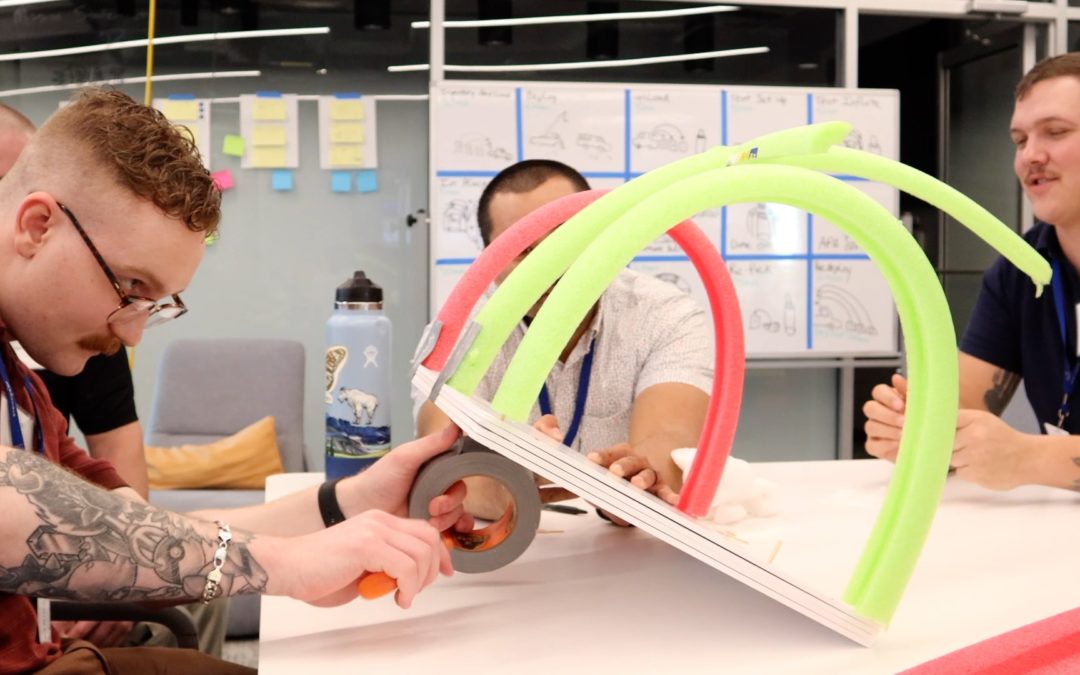The Air Force Global Strike Command team of missile maintainers works up a rough prototype solution during a STRIKEWERX Design Sprint held Dec. 11-13 at the Cyber Innovation Center in Bossier City, La. (Heath Andresen/STRIKEWERX)
By Sean Green | STRIKEWERX Marketing and Communication Director
BOSSIER CITY, La. – STRIKEWERX, Air Force Global Strike Command’s innovation hub, hosted a Design Sprint Dec. 11-13 to support missile maintainers’ mission in extreme weather.
The Design Sprint sought to help missile communication maintainers replacing or working on the Intercontinental Ballistic Missile (ICBM) Advanced Extremely High Frequency (AEHF) Antenna in extreme wind and cold. The AEHF antenna is exposed to all elements, and AFGSC is seeking a shelter that easily breaks down to fit in to the bed of a truck while giving enough room for maintenance and a crane to remove the AEHF antenna.
Over the course of three days in STRIKEWERX at the Cyber Innovation Center, Bossier City, Louisiana, a team from the company Celina and Air Force subject matter experts across the command developed a solution in the form of a dual, inflatable, tent-like structure.
The tent will be able to pivot and enclose around the antenna, providing a barrier for wind and sealing for warmth during maintenance. The prototype aims to be used for multiple maintenance purposes in different weather and can be assembled and disassembled rapidly.
“The Design Sprint process offers great collaboration to work with commercial vendors and leverage current technology, which is not something that most Airmen ever get the opportunity to do,” said Michael Hollister, AFGSC ICBM nuclear command, control, and communication manager. “Allowing Airmen to determine what works best energizes them to induce innovative changes to procedures and hopefully makes them more efficient in their job.”
The design sprint process brings together a team of business, industry, and government to spend five days defining the challenge, understanding needs, creating a prototype solution, and then testing that prototype.
“STRIKEWERX brought together a group of people with total collaboration between the Airmen doing the job and the people making the solution to help us understand the problem we were trying to solve,” said Allan Bruns, Celina business development engineer. “This will speed up the time to get an initial prototype solution that can be used immediately.”
Celina will now produce a full-scale prototype for further testing and evaluation. Pending results, the prototype could be refined and delivered to AFGSC for implementation.
This marks the seventh Design Sprint undertaken by STRIKEWERX. Four sprint prototypes have been delivered to AFGSC for evaluation and scaling.
STRIKEWERX will continue to host Design Sprints to tackle various issues from around the command. For more info on the Design Sprint process, watch this video or email info@strikewerx.com.


